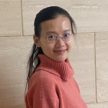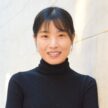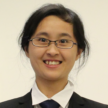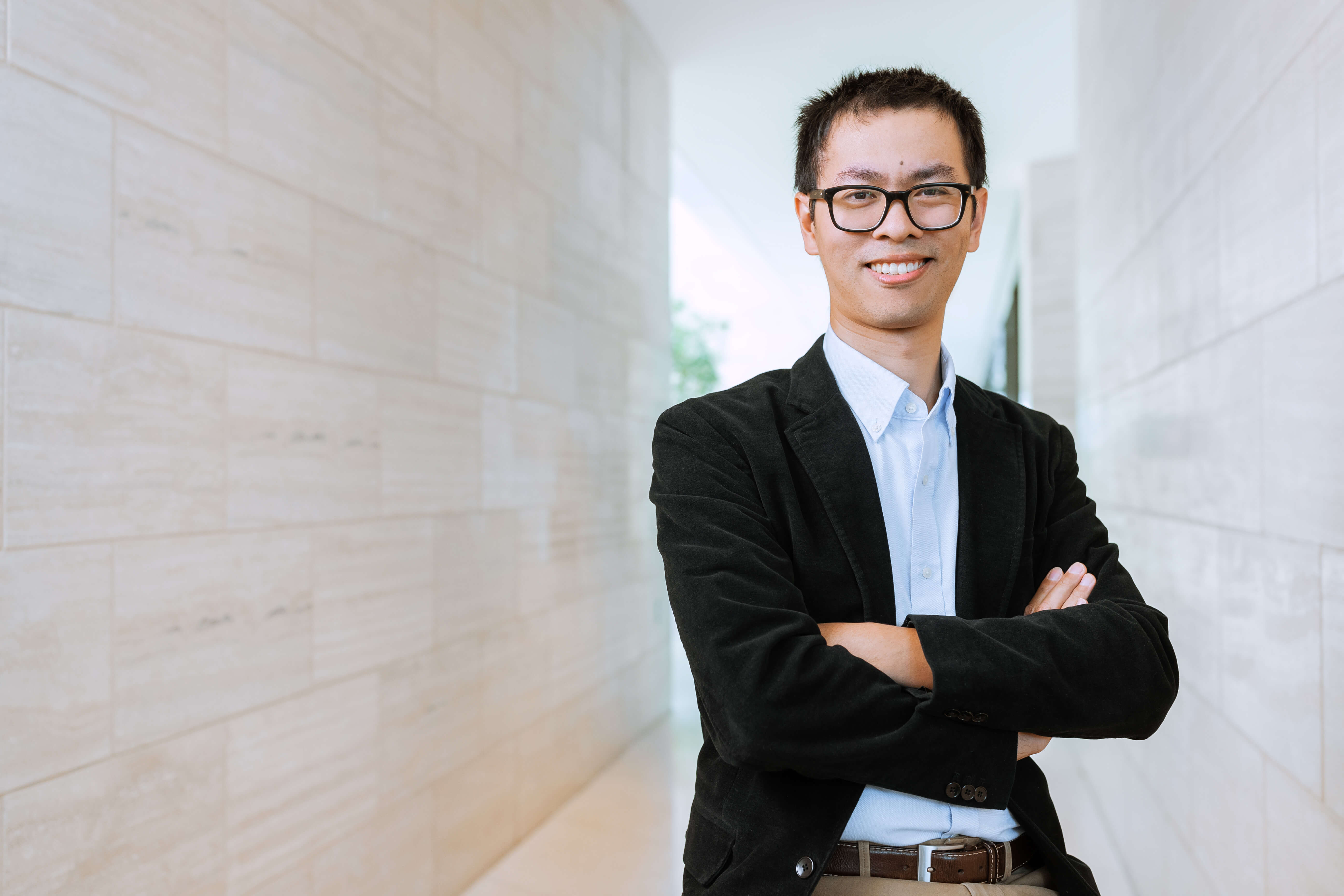ZHOU LAB
Lab focus
Proteins in a cell are metastable and not only threatened by the crowded cellular environment, but also affected by mutations, mistakes in translation and posttranslational modifications, and unpredictable environmental stresses. Proteins tend to misfold with age, which impairs protein homeostasis and is believed to be an underlying cause for many age-related diseases, including Alzheimer’s and Parkinson’s. Protein homeostasis (proteostasis), maintained through balancing protein folding and misfolding, is the key for biological systems to live long and prosper, as almost all cellular functions are fulfilled by specific proteins.
The Zhou lab studies mechanisms underlying the cellular aging process, with a particular emphasis on proteostasis. We study protein folding and misfolding in both young and aging cells, with the goal of understanding the events that lead to the loss of proteostasis during cellular aging and disease as well as identifying mechanisms that can be exploited to rejuvenate aging cells. Our lab uses the budding yeast Saccharomyces cerevisiae to study these topics systematically and comprehensively at the molecular and cellular levels. Budding yeast has been proven to be a great model system for research on cellular aging and revealed longevity mechanisms that are highly conserved in metazoan. By leveraging genetic tools and libraries, we hope to progress quickly on projects to provide insights for fundamental biological questions. We are also developing new methodologies and platforms to broaden our technology portfolio that can be unleashed to break through current limitations in the field and improve our understanding of aging and age-related diseases.
Why it matters
Aging is a general physiological deterioration that constitutes the primary risk factor for major human pathologies, including cancer, cardiovascular diseases, and neurodegenerative diseases. Research to develop cures for these diseases has been hampered because we lack a clear understanding of the factors that underlie the aging process. Elucidating these factors remains an important frontier in aging research and will accelerate our ability to intervene in age-related disease. Recent setbacks in clinical trials for Alzheimer’s disease have sparked a new wave of basic research to understand protein folding and misfolding during aging and disease progression. Proteostasis is the basis for all cellular functions, and its mechanisms are highly conserved. Yeast has long served as a living test tube for proteostasis research and will continue to be a centerpiece of our further understanding of proteostasis in both healthy young individuals and older adults manifesting age-related diseases.
Proteins are the building blocks of life. My lab focuses on understanding age-related protein folding and disease-related misfolding as an essential component of efforts to intervene in age-related disease.
Kai Zhou, PhD
CENTER DETAILS
Dr. Zhou, the first Buck Fellow, joined the Institute directly after his thesis work. Dr. Zhou received his PhD in molecular and integrative physiology from the University of Kansas School of Medicine and the Stowers Institute for Medical Research.
Dr. Zhou has been awarded a prestigious $2.4 million Early Independence Award from the National Institutes of Health. As part of the NIH Director’s Award in the High-Risk, High-Reward Research program, this five-year grant allows Dr. Zhou to skip traditional postdoctoral training and move immediately into independent research.
Contact Dr. Zhou:
KZhou@buckinstitute.org
-
 Liying Li, PhD Postdoctoral Researcher
Liying Li, PhD Postdoctoral ResearcherDr. Li was trained as a behavioral neuroscientist. During her PhD training at the Stowers Institute for Medical Research, she focused on the role of protein translational machinery in learning and memory, using Drosophila as a model system. Her postdoctoral research investigated how mechanosensory genes and circuit shape animals' perceptions and decisions. She is excited to bring the Drosophila model to the Zhou Lab and ask how aging affects animals' innate and learned behaviors. Getting insights from the fruitful molecular studies in the yeast, she is optimistic that some of the mechanisms unveiled by her lab members will also play a role in the fly.
LLi@buckinstitute.org
-
 Qingqing Liu, PhD Postdoctoral Research Fellow
Qingqing Liu, PhD Postdoctoral Research FellowDr. Liu is from China and holds a bachelor’s degree in biological engineering. In 2017, she earned her PhD in microbiology and immunology at the China Agricultural University, where she worked on the circadian clock and the ubiquitin-proteasome system. Interested in protein homeostasis and aging, she joined the Zhou lab in February 2018. She is optimistic and believes that she will overcome all kinds of difficulties with her perseverance. In her spare time, she enjoys doing traditional Chinese needlework, which makes her relaxed and happy.
QLiu@buckinstitute.org
-
 Yaouf (Fu) Liu, PhD Postdoctoral Researcher
Yaouf (Fu) Liu, PhD Postdoctoral Researcheryliu@buckinstitute.org
-
 Jewel Mangalathil Dominican University Graduate Student
Jewel Mangalathil Dominican University Graduate StudentJewel graduated from Sonoma State University with a degree in Psychology. She is deeply honored to be a part of the Zhou lab and hopes to gain invaluable research experience and knowledge in the field of neurodegenerative diseases. Her ultimate goal is to pursue an MD-PhD and hopes to contribute significantly to the development of more effective treatments for those affected by neurodegenerative diseases. She is also interested in space medicine and aspires to contribute to the endeavor of establishing life on other planets. Her hobbies include astronomy and gardening.
JMangalathil@buckinstitute.org
-
 Wanlin (Laura) Ni Pre-doctoral Researcher
Wanlin (Laura) Ni Pre-doctoral ResearcherWanlin, who prefers to be called Laura, graduated from the School of Life Science at Tsinghua University, China. After completing her bachelors’ degree, she embarked on her career as a research assistant in the Kai lab, driven by a deep fascination for proteomics. With a robust academic background, she is enthusiastic about bringing new perspectives and insights to the field of aging research.
WNi@buckinstitute.org
-
 Sho Joseph Ozaki Tan Predoctoral Researcher
Sho Joseph Ozaki Tan Predoctoral Researchersozaki@buckinstitute.org
-
 Lingraj Vannur Research Associate
Lingraj Vannur Research AssociateLingraj is a Data Scientist in the Zhou Lab, with over three years of experience as an AI Researcher. He specializes in applying Machine Learning and AI to address challenges in aging research, particularly in AI-driven drug discovery. His experience encompasses predictive modeling for drug properties, small molecule design using deep generative models and model explainability. His current research focuses on using AI to study dynamics of age-related proteins and developing AI based virtual screening techniques for yeast cell aging processes.
LVannur@buckinstitute.org
-
 Mariko Wayne Dominican University Graduate Student
Mariko Wayne Dominican University Graduate StudentMariko is a graduate student at Dominican University that is working in Zhou lab. She grew up in the Bay Area and enjoys trying new food. In her free time she likes to hike and solve escape rooms with friends.
MWayne@buckinstitute.org
-
 Meiying Wu Postdoctoral Researcher
Meiying Wu Postdoctoral ResearcherDr. Wu earned her Ph.D. degree from Peking University in China, where she focused on unraveling the evolutionary relationships among transcription factors associated with plant reproduction. With a passion for deciphering the complex health issues that humanity faces today, particularly in understanding the fundamental mechanisms of aging, she became a member of Zhou's lab in September 2023. In her free time, she enjoys capturing the beauty and diversity of the natural world. Sometimes, she also finds her truest joy in singing and hiking.
MWu@buckinstitute.org
-
 Seungmin Yoo, PhD Postdoctoral Research Fellow
Seungmin Yoo, PhD Postdoctoral Research FellowDr. Yoo has been studying at Seoul National University in Korea, focusing on autophagy with aging in mice and mitochondrial degradation by autophagy under stress condition during his PhD and postdoctoral studies at Seoul National University in S. Korea. He joined the Zhou lab in 2022 to study yeast, a faster model for studying aging. He is interested in changing of lysosomes during aging. Outside the lab, he enjoys listening to music and seeing nature.
SYoo@buckinstitute.org
-
 Fan Zheng, PhD Postdoctoral Research Fellow
Fan Zheng, PhD Postdoctoral Research FellowDr. Zheng focused on studying microtubule dynamics regulation and mitochondrial dynamics regulation during her PhD training at the University of Hong Kong (HKU). She underwent her postdoctoral training and research experience as an associate investigator at the University of Science and Technology of China (USTC). Intrigued by the important roles of mitochondria in the context of aging and neurodegenerative diseases, Dr. Zheng joined the Zhou lab at Buck in 2019. Now she is studying the plasticity of mitochondrial proteome under stress conditions using the model organisms S.cerevesiae and Drosophila.
FZheng@buckinstitute.org
Research Associate
The Buck Institute has an opening for a Research Associate to study cellular aging and Alzheimer’s disease (AD) in the lab of Dr. Kai Zhou.
The Zhou lab uses budding yeast as the main model organism to study the cell biology of aging with an emphasis on proteostasis and mitochondria. We also have a broad interest in other cellular structures and aim to discover new inter-organellar communications/interactions. Proteostasis defect and mitochondrial dysfunction are two conserved hallmarks of aging and many neurodegenerative diseases, including AD.
Budding yeast is an ideal model to study cellular aging and rejuvenation processes: both happen at the same time along the axis of asymmetric cell division, which generates an aging mother cell and a rejuvenated daughter cell. This amazing model organism is great for high-throughput screening to crack the fundamental mechanism of aging. We use multiple cutting-edge imaging methods, high-throughput screening, biochemistry, bioinformatics, and machine learning to address systematically the response of cellular proteome towards stress, aging and AD-related proteins.
We are interested in questions related to protein folding, protein misfolding/aggregation, phase separation, mitochondrial biogenesis and dysfunctions, as well as other cell biological questions, in response to stress, aging, and AD.
TRAINING & CAREER OPPORTUNITY
Initially, the Research Associate will receive training from senior researchers in the lab, followed by either running their own independent project(s) and/or contributing to the project of a senior researcher. The goal is for the Research Associate to author 1-2 publications, with either first or co-authorship, within 2 years to accelerate their future research career. We therefore seek candidates who can spend 2+ years in the lab to benefit from this training with enough time to complete their project. Your success is the common interest we share! Please see below for a list of recent publications.
ABOUT THE ZHOU LAB
The Zhou lab is establishing a new research program related to aging. Our diverse lab of young scientists from many different countries enjoys making cool scientific discoveries. We believe this cultural diversity will enable us to push the frontier of science for humankind.
QUALIFICATIONS
Education & Experience
- Bachelor’s degree in biology or related field
- Strong interest in proteostasis, cell biology, aging and studying new scientific techniques
- RA will learn genetics, cell biology, proteomics, biochemistry, imaging, and bioinformatics to solve aging–related questions
Other
- Rewarding and challenging experience for a highly motivated individual
- Ideal opportunity for graduates seeking research and publication experience required for future graduate/medical school applications
Please click here to submit a cover letter addressing your past research experience, plans, and expectations for working in the lab, along with your college transcript and GPA. Please also include a current CV and contact information of 2-3 professional references to be sent on your behalf to kzhou@buckinstitute.org. You are welcome to email kzhou@buckinstitute.org with questions.
Postdoctoral Researcher
The Buck Institute has an opening for a Postdoctoral Researcher to study proteostasis and mitochondria during stress, cellular aging, and the development of Alzheimer’s disease (AD) in the lab of Dr. Kai Zhou. The Zhou lab uses budding yeast as the main model organism to study the cell biology of aging with an emphasis on proteostasis and mitochondria. Proteostasis defect and mitochondrial dysfunction are two conserved hallmarks of aging and many neurodegenerative diseases, including AD. Budding yeast is an ideal model to study the cellular aging and rejuvenation processes, both happen at the same time along the axis of asymmetric cell division. We use multiple cutting-edge imaging methods, high-throughput screening, biochemistry, bioinformatics, and machine learning to address systematically the response of cellular proteome towards stress, aging and AD-related proteins. We also design new technologies and engineer new tools to solve the problems we face.
As proteostasis and mitochondrial components are conserved in all organisms, our strategy is to take advantage of high-throughput platforms to quickly discover new fundamental mechanisms in budding yeast and use novel mechanisms to guide further exploration in other animal models (e.g. fruit fly) for aging and ADs. We are interested in questions related to protein folding, protein misfolding/aggregation, phase separation, mitochondrial biogenesis and dysfunctions, as well as other cell biological questions, in response to stress, aging, and AD. Our goal is for the Postdoctoral Researcher to publish several high-profile papers and prepare projects they can take to their own lab in the future. Your success is the common interest we share! Please check the Zhou lab webpage for recent publications
QUALIFICATIONS
- Ph.D. or M.D. degree in biology or related fields
- Published research in peer-reviewed journals
- Strong interest in proteostasis, cell biology, and aging
- Previous research experience in cell biology or yeast biology preferred, but not required
ABOUT THE ZHOU LAB
The Zhou lab is establishing a new research program related to aging. We apply genetics, cell biology, proteomics, biochemistry, imaging and bioinformatics to solve protein folding and aging–related questions. Our diverse lab of young scientists from many different countries enjoy making cool scientific discoveries. We believe this cultural diversity will enable us to push the frontier of science for humankind.
TO APPLY
Please click here to apply. Submit a cover letter addressing your past research experience, plans, and expectations for working in the lab. Also, include 1-2 paragraphs on specific questions related to our lab topics that you would like to pursue in our lab. This short research proposal will help us focus our time on the candidates that best match our lab interests. Please also include a current CV and three professional references. Please feel free to consult me via email (kzhou@buckinstitute.org).
Selected Publications
- Qingqing Liu, Benjamin Fong, Seungmin Yoo, Jay R Unruh, Fengli Guo, Zulin Yu, Jingjing Chen, Kausik Si, Rong Li, Chuankai Zhou. Nascent mitochondrial proteins initiate the localized condensation of cytosolic protein aggregates on the mitochondrial surface. Proc Natl Acad Sci U S A. 2023 Aug;120(31):e2300475120. doi: 10.1073/pnas.2300475120. Epub 2023 Jul 26. PMID: 37494397 PMCID: PMC10401023 (available on 2024-01-26) DOI: 10.1073/pnas.2300475120
-
Zhou, C. The Molecular and Functional Interaction Between Membrane-Bound Organelles and Membrane-Less Condensates. Front. Cell Dev. Biol., 25 April 2022 | https://doi.org/10.3389/fcell.2022.896305
-
Liu Q., Chang CE., Wooldredge AC., Fong B., Kennedy BK., Zhou C.*. Tom70-based transcriptional regulation of mitochondrial biogenesis and aging. Elife. 2022 Mar 2;11:e75658. doi: 10.7554/eLife.75658. Epub ahead of print. PMID: 35234609.
-
Domnauer, M., Zheng, F., Li L., Zhang, Y., Chang, C., Unruh J., Conkright-Fincham, J., McCroskey, S., Florens, L., Zhang, Y., Fong, B., Sharma, R., Ramanathan, A., Si, K.,*, and Zhou, C.*. Proteome plasticity in response to persistent environmental change. Molecular Cell. 2021 Aug 19;81(16):3294-3309.
- Liu, Q., Chang, C., Fong, B., Unruh, R., Guo, F., Si, K., Kennedy, K., Li, R., and Zhou, C*. Mitochondrial origin of cytosolic protein aggregation and proteostasis. Under revision. (*corresponding author) (Preprint available at SSRN: http://dx.doi.org/10.2139/ssrn.3808300)
- He, C., Zhou, C., Kennedy, B. K. (2018 Mar 8). The yeast replicative aging model. Biochim Biophys Acta. (Epub ahead of print)
- Ruan, L.*, Zhou, C.*, et al. (2017). Cytosolic proteostasis via importing of misfolded proteins into mitochondria. Nature, 543(7645), 443–446. (*Equal contribution)
- Zhou, C., et al. (2014). Organelle-based aggregation and retention of damaged proteins in asymmetrically dividing cells. Cell, 159, 530–542. PMID: 25417105.
- Zhou, C., et al. (2014). Life history: Mother-specific proteins that promote aging. Curr Biol, 24, 24, R1162-4.
- Zhou, C., et al. (2011). Motility and segregation of hsp104-associated protein aggregates in budding yeast. Cell, 147, 1186–1196.

